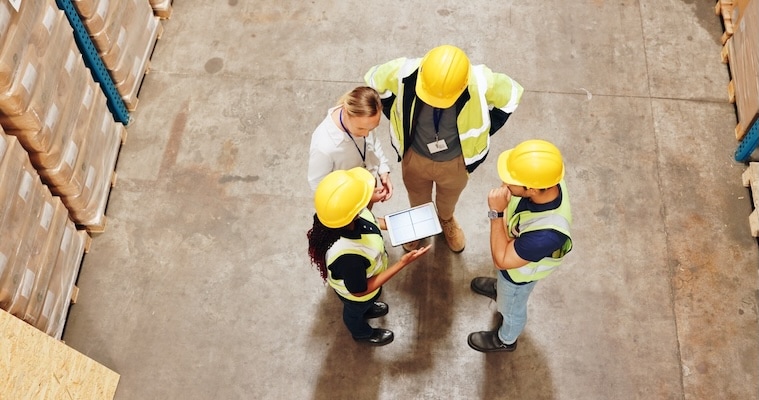Provided by: Three Sixty Safety
The Importance of Keeping Clean on the Floor
Often, our workplace is full of action with many workers performing different operations simultaneously. Imagine the chaos that would result if workers did not clean up after themselves. The manufacturing floor would become a hazardous obstacle course as trash and debris piled up, and walking from one point to another would mean navigating through a mess of materials.
It would not only be aggravating and counterproductive; it would be very dangerous, considering that slips, trips and falls are a common cause of injury on the job site. And inadequate housekeeping is a contributing factor in most of these accidents. Keep reading to learn more about the importance of housekeeping and how you can play your part.
What Is Housekeeping?
Avoiding dangerous conditions like those described above requires a commitment to housekeeping by every individual on our team. This means making spill cleanup, daily debris/scrap removal, general cleaning and use of trash bins a priority every day.
Good housekeeping also means constant vigilance. Remove any object or material that obstructs a pathway on the floor and take care of any other materials that could pose a possible fire hazard or danger for co-workers. This includes the following:
- Extension cords
- Hand tools
- Hoses
- Cables
- Empty containers
- Debris
- Food
- Water or spills
- Sawdust
- Combustible materials
Do Your Part
Follow these housekeeping tips to keep yourself and your co-workers safe.
- Limit the amount of materials and chemicals on-site to the quantities that you will need.
- Store tools and materials out of the way in storage bins or lockers.
- Keep flammable or hazardous wastes in covered, separate waste containers.
- Place warning signs in wet or muddy areas that could pose a slipping hazard.
- Place protective guards across areas where workers could fall or face an impalement hazard.
- Control muddy areas using gravel, boards or plywood.
Avoid These Poor Practices
When practicing good housekeeping, here are several things you should never risk doing:
- Do not leave housekeeping responsibilities for the last few minutes of the day.
- Do not clean equipment without first locking out.
- Never pile material around fire extinguishers, sprinklers or emergency exits.
- Never blow off dust with compressed air; use a vacuum or brush.
- Do not collect broken glass or metal scraps in plastic bags.
- Never use bare hands when collecting waste; gloves prevent cuts and splinters.
Our Commitment to You
We put your safety first. If you have any doubts about the security of your worksite—regarding housekeeping or any other issue—do not hesitate to talk to your supervisor.
This Safety Matters flyer is for general informational purposes only, and is not intended as medical or legal advice.







